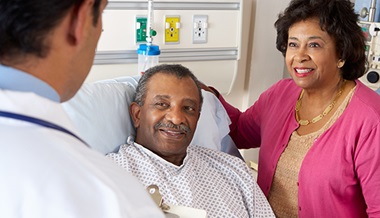Gastric Cancer: Answers from Expert Fabian Johnston
Featured Expert:
Gastric cancer, commonly known as stomach cancer, is responsible for half a million deaths worldwide each year and is more common in Asia and Latin America. The cause is unknown but current research is aiming toward prevention and early detection of the disease. Fabian Johnston, M.D., M.H.S., co-director of the Johns Hopkins Peritoneal Surface Malignancy Program, answers frequently asked questions about gastric cancer:
Is gastric cancer hereditary?
Gastric cancer can be hereditary, but it is uncommon. If you have a family history of gastric cancers, it is imperative to work with your primary care physician to review the history and determine if there is a need for further testing.
What are the symptoms of gastric cancer?
Unfortunately, the symptoms can be similar to both benign and cancer occurrences. Symptoms include:
- Weight loss
- Poor appetite
- Getting full quickly
- Anemia
What tests are available to rule out gastric cancer?
The best test to rule out gastric cancer is an upper endoscopy to look directly at the lining of the stomach.
Are there any foods that would predispose a person to gastric cancer?
Generally, our diet in the United States does not predispose to gastric cancer. However, in countries where smoked food, salted meats, fish and pickled vegetables are consumed, there is a higher risk.
Have there been advancements in treatments for gastric cancer?
Yes. The choices for treatment of gastric cancer have improved based upon two large trials that showed that giving chemotherapy before and after surgery, or giving chemotherapy and radiation after surgery, improves outcomes. It is important to complete therapy to get the best results.





